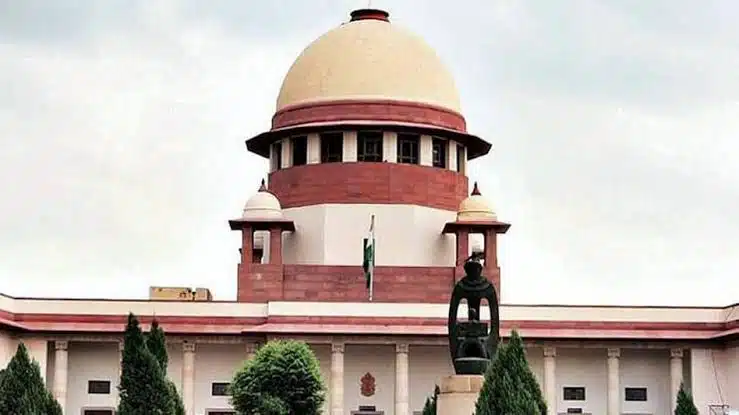The top court is expected to rule today in the case of Adani Group v. Hindenburg Research regarding the formation of a panel of subject matter experts to reinforce current regulatory measures for stock markets.

Today, the Supreme Court (SC) will issue a ruling regarding a group of PILs that ask for an investigation into fraud claims made against the Adani Group by US-based short-seller Hindenburg Research. A major selloff in Adani equities resulted from the damning report from the short-seller, wiping out regular investors to the tune of billions of dollars.
The highest court’s decision about the formation of a panel of subject-matter experts for bolstering current regulatory measures for stock markets is anticipated to be announced today.
The supreme court had raised concerns during the hearing regarding safeguarding Indian investors and asked the Centre and Sebi, a market regulator, for their opinions. The court also recommended the formation of an expert team to examine the framework for safeguarding investors. The Center gave its approval and enclosed the expert names in a sealed cover.
The SC, however, stated that it desired complete transparency for the safety of investors and turned down the Centre’s offer in the sealed cover. The highest court also disallowed any sitting judge from presiding over the proposed panel’s operations.

Adani-Hindenburg :
Four PILs concerning the Adani-Hindenburg issue have already been submitted to the Supreme Court by attorneys M. L. Sharma, Vishal Tiwari, Congresswoman Jaya Thakur, and Mukesh Kumar. In his PIL, Tiwari requested that the Centre appoint a commission under the supervision of a retired judge of the Supreme Court to look into the allegations made in the Hindenburg report that the Adani Group engaged in stock manipulation and fraud by employing shell companies.
Congressman Thakur has asked for an investigation of the Adani Group of enterprises to be conducted under the direction of an active Supreme Court judge. The fourth PIL requests an investigation into the allegations made by Hindenburg by several central government departments, under the direction of a panel or a former judge of the Supreme Court.
In his plea, Sharma pleaded for the prosecution of Nathan Anderson, the inventor of Hindenburg, and his friends in India and the US for allegedly taking advantage of unwitting investors and causing the “artificial collapsing” of the Adani stock market.
When shares decrease, a short seller is profitable. The accusation against Hidenburg is that it produced a negative report after taking a short position on Adani stocks. And it made a tremendous profit when the value of the shares dropped. During the SC hearing, Sebi himself brought up the subject. The market regulator informed the supreme court during the hearing that Hindenburg was a short seller that investigated businesses it thought had governance and/or financial concerns.
Its tactic, the market regulator said, “is to take a short stake in the bonds/shares of such businesses at the current prices, (i.e., sell the bonds/shares without really holding them) and then release their reports”. Bond/share prices decline and the market gains more money the more it believes its reports and the more “stop loss limitations” are activated.
The Gautam Adani-led group is the subject of a Sebi investigation into the collapse in Adani stock prices as well as specific accusations made by Hindenburg. But as of now, it has not discovered any anomalies, according to a Wednesday Bloomberg story.
Read also: SC rejects plea to stop media from reporting on the Adani-Hindenburg issue













